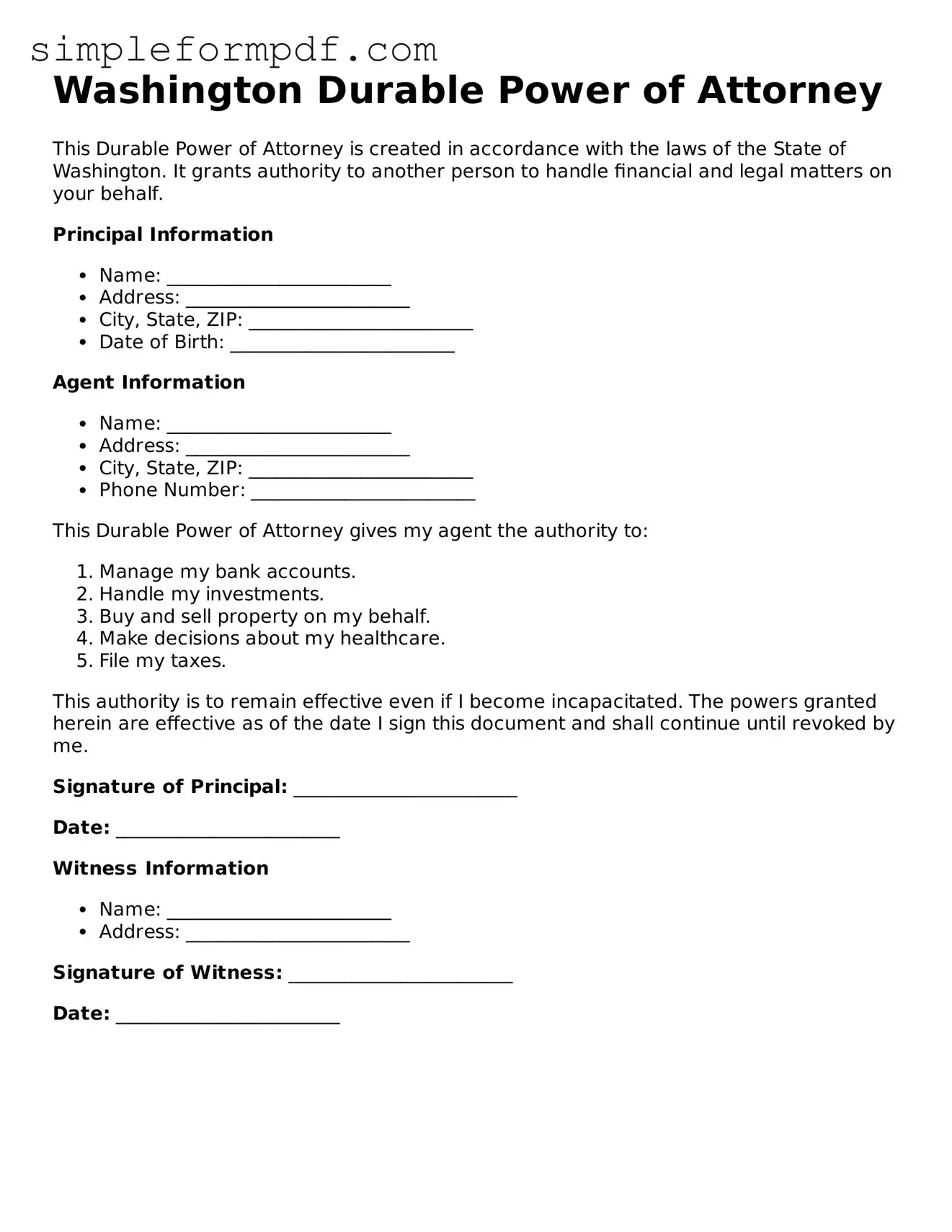Free Durable Power of Attorney Form for the State of Washington
The Washington Durable Power of Attorney form is a legal document that allows you to appoint someone to make financial and legal decisions on your behalf if you become incapacitated. This form remains effective even if you lose the ability to make decisions for yourself, providing peace of mind for you and your loved ones. To ensure your wishes are honored, consider filling out the form by clicking the button below.
Launch Editor

Free Durable Power of Attorney Form for the State of Washington
Launch Editor
Need instant form completion?
Finish Durable Power of Attorney online in just a few minutes.
Launch Editor
or
Download PDF
